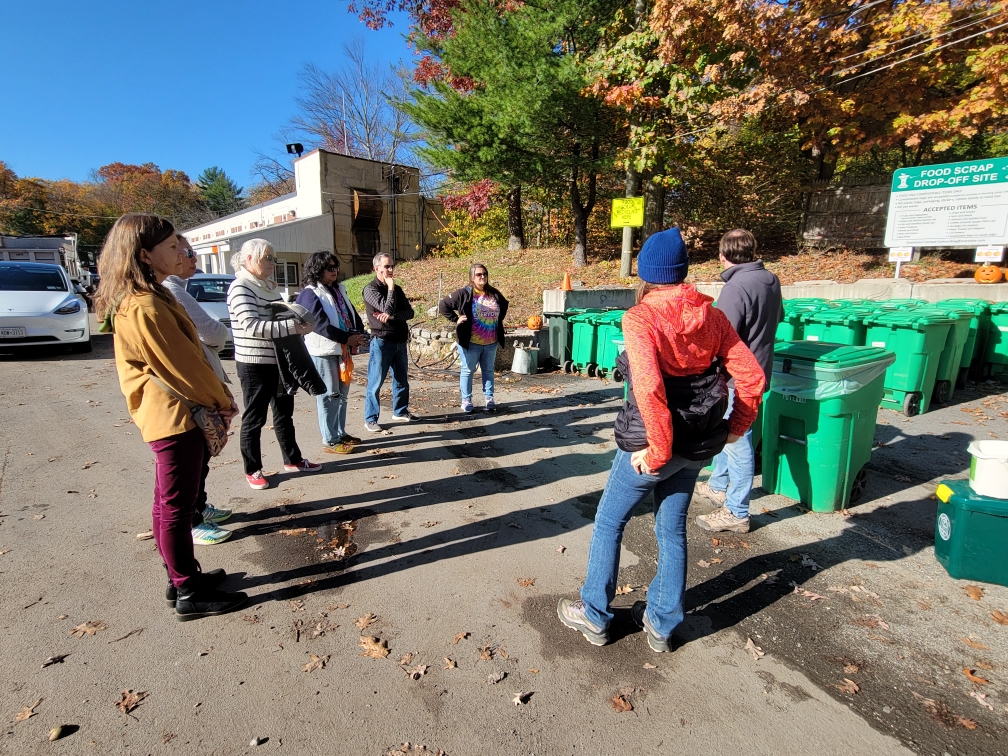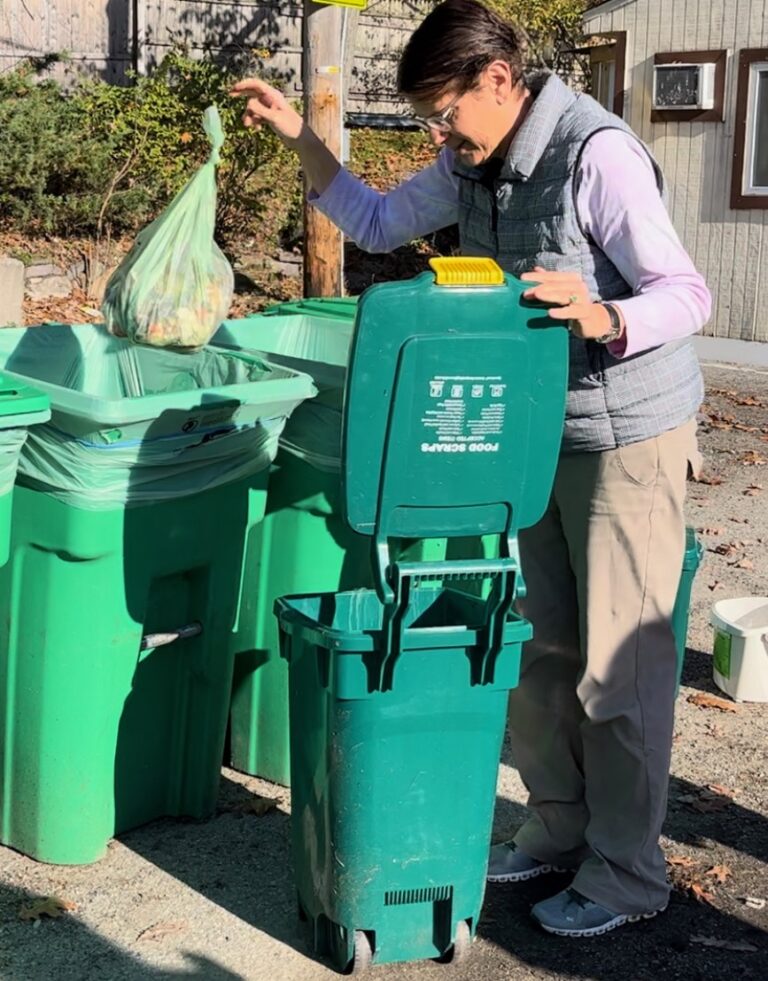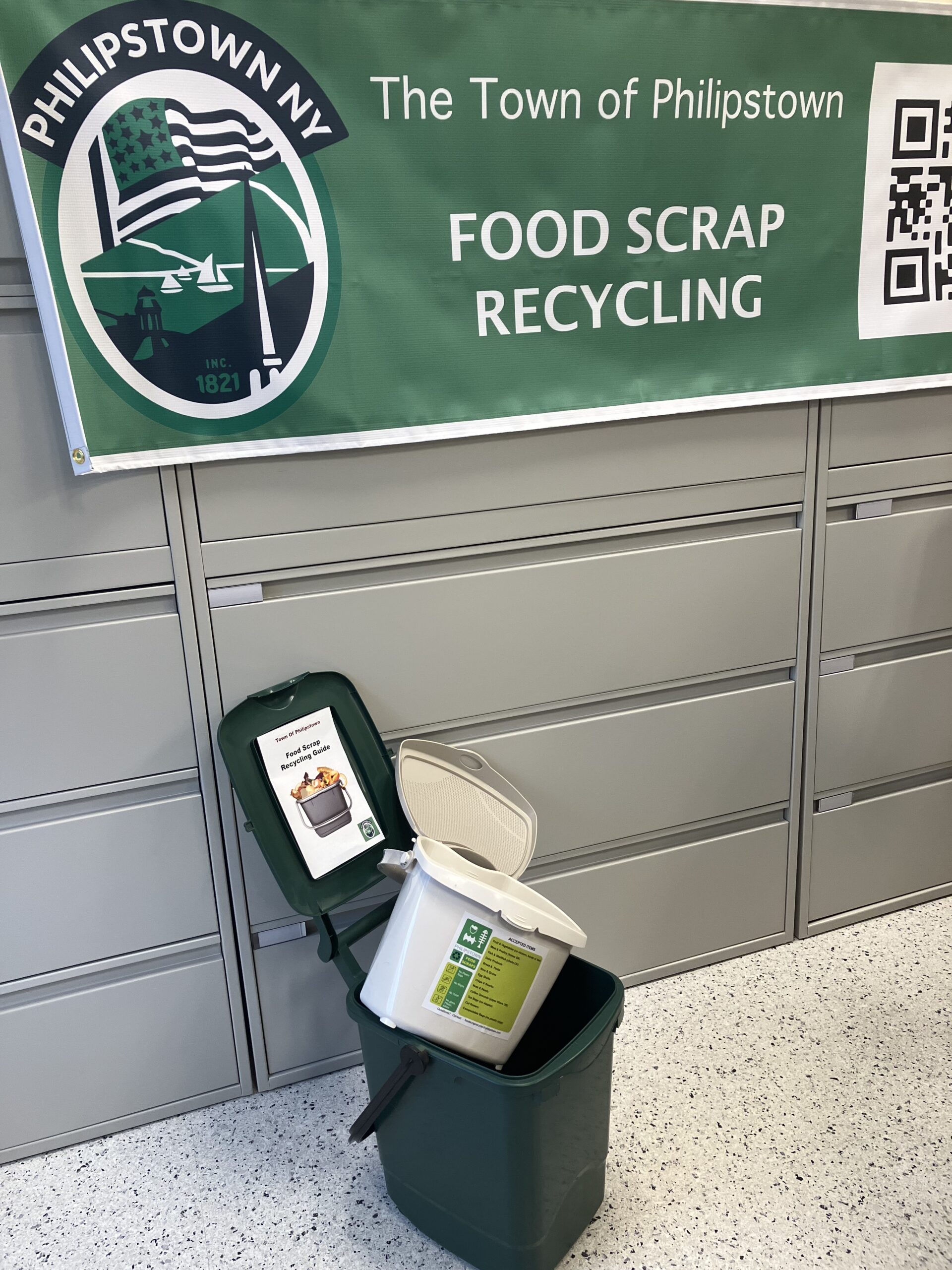
Menu

It’s a solution for food waste that can’t be composted at home: meat, fish, bones, dairy, grains, and more.
Your town establishes a voluntary drop-off program
Residents collect food scraps at home, then drop off their scraps at a convenient location
A commercial composter carts away the food scraps and composts them
The finished, nutrient-rich compost is sold to farms and garden centers


On average, American households waste 30-40% of the food they purchase
In a landfill, good waste decomposes anaerobically, producing methane, a powerful greenhouse gas
Also known as “food scrap recycling,” it eliminates a major portion of what we send to landfills.
For the cost of a countertop container and transport bin, anyone can participate: apartments, condos, single family homes
Click the blue button to let your town know you’re interested.
When resident interest is sufficiently strong, we’ll propose the program to your town board.
You can help by sharing a link to this page with friends and neighbors
Stay informed. Click here to receive composting updates.
